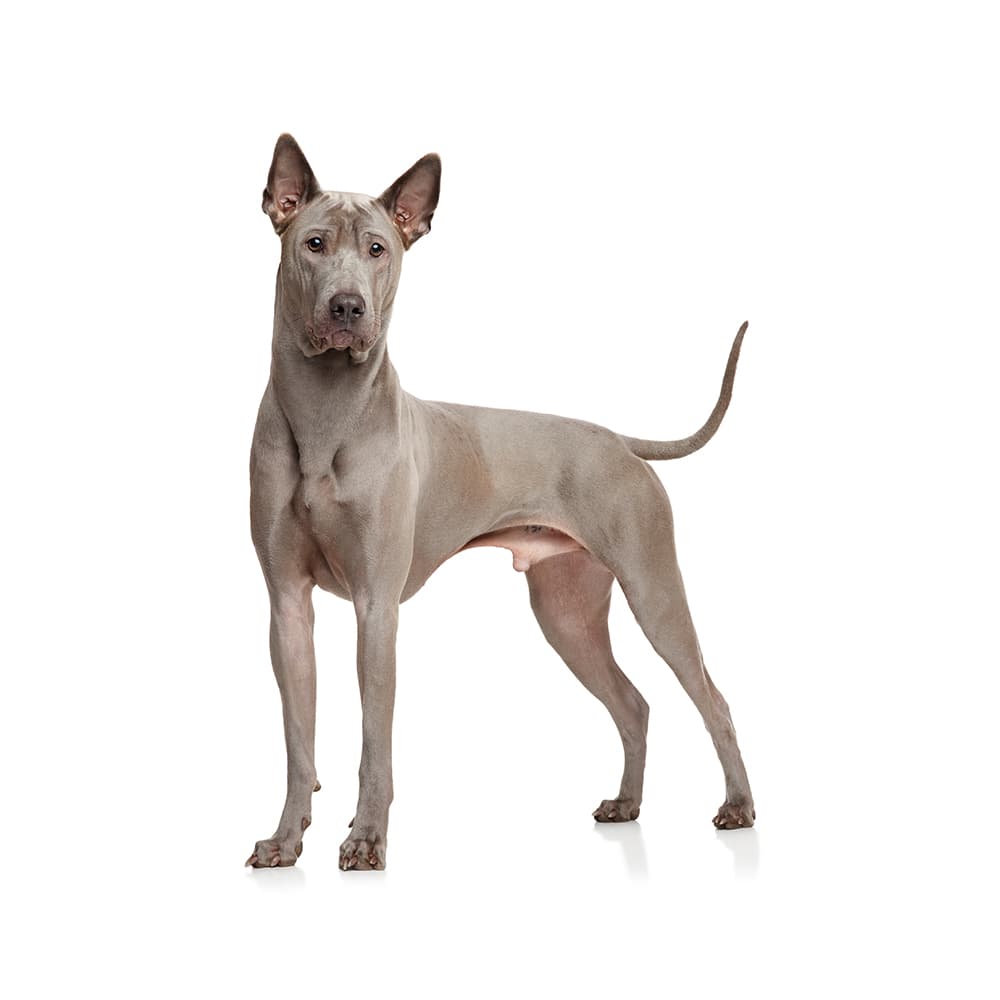Discover your dog's connection to this breed and 200+ others


Discover your dog's connection to this breed and 200+ others



The Thai Ridgeback is an ancient breed that originated in eastern Thailand, primarily used as a hunting dog, a watchdog, and as a companion. The breed's most distinctive characteristic, a ridge of hair that grows opposite to the rest of their coat along their back, gave them their name. This feature is shared with only two other breeds: the Rhodesian Ridgeback and the Phu Quoc Ridgeback. The Thai Ridgeback's history is relatively unknown, but archaeological evidence suggests that they have existed for thousands of years. The breed remained isolated for most of its history in the Thai region, which has kept it relatively pure from crossbreeding.
Thai Ridgebacks are generally healthy dogs, though hip dysplasia and dermoid sinus cysts can occur in this breed. As for all breeds, genetic screening for hereditary conditions is recommended to assist veterinarians with diagnosis and proactive care, as well as help breeders identify affected and carrier dogs. As a Sighthound breed, they are known to be more sensitive to barbiturate anesthetics. Thiopental, or any other thiobarbiturate, should not be used on these dogs.
Thai Ridgebacks are known for their intelligence, independence, and athletic ability. They can be quite aloof and reserved, especially with strangers, but they are generally loyal and protective of their families. This breed has an innate ability to guard and hunt, and because of this may be aggressive to protect their owner if they are not properly trained. They require ample exercise and mental stimulation, as they can become bored and destructive if their energy isn't positively channeled.
A canine genetic lineage is a group of individuals or entire breeds that descended from common ancestors predating modern breed formation. Often these lineages are associated with a ‘type’ of dog with a unique historical working role and associated behaviors (e.g., herding, scent hunting, etc.).
Spitz and Sled Dogs originate in the Arctic and subarctic regions which caused them the develop adaptations to cold climates. Some of these adaptations give rise to characteristics of the lineage, most notably a dense double coat that helps with insulation. The lineage of these dogs can be followed back to ancient breeds developed by Indigenous people. These ancient breeds were used as an aid for transportation, herding, guarding, and hunting. These jobs have created dogs that are independent, intelligent and have strong work ethics as well as a sturdy body that helps them to pull sleds or go on long journeys over rough terrain.
Example breeds with ancestry from this lineage include Akita, Chow Chow, and Siberian Husky.
Thai Ridgebacks are skilled climbers and jumpers. Their agility makes them excellent at catching small game, and they've been known to climb fences that would keep in other breeds.
Their ridge of hair can form different patterns, the most common of which are the violin and the arrow.
Thai Ridgebacks have a distinctive 'prancing' gait, often described as a trot or a pace, in which the legs on one side move together, then the legs on the other side.
The Thai Ridgeback was relatively unknown outside of Thailand until the 1990s, and even today, they are considered a rare breed.
https://www.petmd.com/dog/breeds/c_dg_thai_ridgeback
https://www.ukcdogs.com/thai-ridgeback
https://www.akc.org/dog-breeds/thai-ridgeback/
https://www.fci.be/en/nomenclature/THAI-RIDGEBACK-DOG-338.html
Recommended by top vets with decades of experience
21 breeds
64 genetic health markers
50 genetic trait markers
